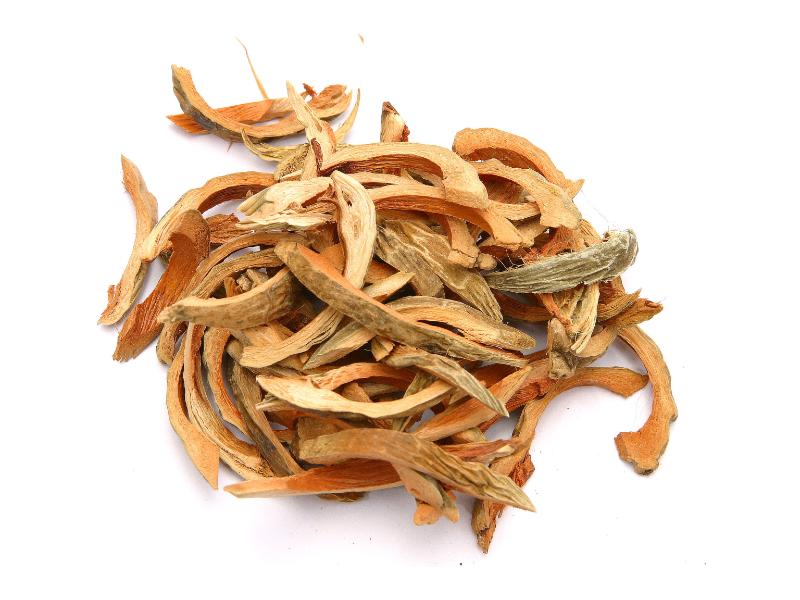Search in medicinals
Arecae Pericarpium
Areca husk
大腹皮 〔大腹皮〕 dà fù pí

Alternate English names: betel nut husk pinang husk
Alternate Chinese names: 大腹毛 dà fù máo; 茯毛 fú máo; 槟榔衣 bīng láng yī; 大腹绒 dà fù róng; 槟榔皮 bīng láng pí
Kingdom: Plant
Origin in PRC Pharmacopoeia: Areca catechu L. (PRC Pharmacopoeia)
Origin in unofficial sources: Areca catechu L.*
Use: Medicinal
Category: Qì-rectifying agents
Properties: Acrid; slightly warm.
Channel entry: Spleen, stomach, large intestine, and small intestine channels.
Actions and indications:
- Moves qì and abducts stagnation: Qì stagnation in the stomach and intestines.
- Disinhibits water and disperses swelling: Water swelling; leg qì (jiǎo qì) with swelling and pain.
Dosage and method: Oral: 5–10g in decoctions. Outside the medical context, preparations of dà fù pí made with limestone and sugar are sold in China as a mild psychoactive drug that it administered by chewing.
Warnings: Use dà fù pí with care in qì vacuity.
Product description: This is a oval pericarp is sold in two halves with the seed removed. It is 6 cm long and about 8 mm in diameter. It is white in color, and, apart from the endocarp, is highly fibrous and pliable. The seed, Dà fù pí (大腹皮 Arecae Pericarpium, areca husk), is used separately.
Quality: Dry supple whitish-yellow ones are the best.
Production area: Hǎinán, Guǎngdōng, Guǎngxī, Yúnnán, Táiwān, Philippines, and Indonesia.
Etymology: The term dà fù pí 大腹皮, literally big belly husk,
describes the shape.